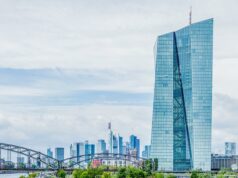HANNOVERSCHE GENERAL NEWSPAPER comes to the following conclusion:
„The rise and fall of Cebit tell a lot about German strengths and weaknesses. The root of the fair was always the hardware – whether mobile phone, laptop or the cooling system for the data center. The problems of the fair began with a world in which the devices are just interchangeable carriers of software that you can not touch, can not repair and not sell per piece. The revolution was never a German strength. Digitization is a jump in which both feet are in the air. “
The SÜDDEUTSCHE ZEITUNG ultimately considers the attitude of the fair to be a „good message“:
„Because it shows that digitization is no longer a marginal phenomenon that is celebrated en bloc at a fair – and no matter how big. That they have not come to see this development, you have to credit the organizers as a failure. The attempt to reorganize Cebit this year was just too late. “
And the FRANKFURTER GENERAL NEWSPAPER finds:
„Concentrating on the Hannover Messe as the organizer is consistent against the backdrop of Germany’s economic opportunities. With the networking of machines and goods in the Internet of Things, Germany’s economy can still hope to find a connection to the digital world. In the future, this connection will be more apparent in the industrial trade fair. But: The development of all products must be faster. “
The European Union is to become carbon neutral by 2050, according to the will of the Brussels Commission. An „ambitious goal“, says the KÖLN CITY ADS, who does not quite trust the whole thing:
„With its bold statement, the commission wants to encourage investors to change direction. But for that the EU states must be credible. The majority of them, including Germany, are already missing the climate targets for 2020. And when the Commission wanted to tighten its targets for 2030 in the summer, the German government stepped in. For her, the short-term interests of the auto and coal industry are more important to her than the long-term living conditions on the planet. As is so often the case in climate policy, doing nothing in the present should be compensated by the more energetic action in the distant future. „



